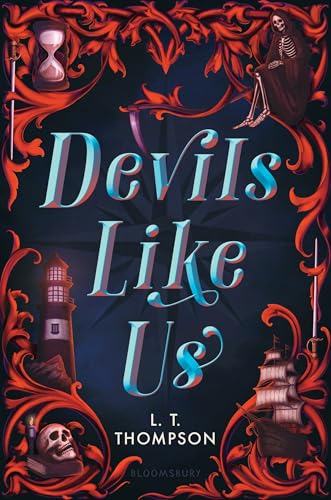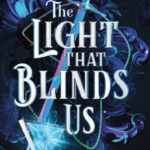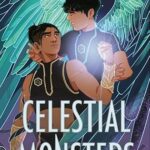
Author Interview: Devils Like Us by L.T. Thompson
We had the pleasure of asking author L.T. Thompson about their newest release Devils Like Us, which is a YA historical fantasy with three queer pirates! If you were like us, and deeply missing more OFMD, then I think you might love reading this one! Devils Like Us is available now!
Thank you Bloomsbury YA for gifting us finished copies!

Devils Like Us
by L.T. ThompsonPublished by: Bloomsbury YA
on June 3, 2025
Genres: Fantasy, Historical Fiction, LGBTQIA+, Young Adult
Bookshop, Amazon
Goodreads
Our Flag Means Death meets The Gentleman's Guide to Vice and Virtue in this YA historical fantasy about three queer and trans teens facing down a secret magical society.
Cas has a rule: Don't tell anyone. Not about the nagging gender discomfort, and certainly not about the prophetic visions of untimely deaths. Cas broke this rule only once, and in response, Remy DeWindt ended their friendship forever.
Remy has spent the last eight years researching the secret society that kidnapped her father and the dark magic they practice. She's determined to take them down and bring her father home—no matter what her former friend Cas thinks happened to him.
Finn is desperately in love with Remy, but Remy would never give in to a desire the church deems a sin. But Finn isn't worried about sin. She already committed the worst sin of all when she made a sinister bargain for a deadly price—a price that will soon have to be paid.
When Cas's latest vision sets the three of them on a collision course, they embark on a journey that will force them to confront hidden secrets and deadly magic—and also offer them the chance to find out who they truly are.
Author Interview
1. Cas’ journey with gender identity is layered into a high-stakes fantasy plot without ever feeling sidelined. How did you balance the intensity of swashbuckling adventure with the quiet, internal exploration of gender and identity?
My favorite fantasy stories are the ones where the supernatural elements feel closely tied to the characters’ emotional arcs. This was definitely front-of-mind for me as Cas’s story was coming together. Cas has been having visions of people’s deaths before they happen, and he learned the hard way, years ago, that he needs to keep these visions a secret. Similarly, he’s spent years trying to ignore his own gender discomfort and to hide how much he’s struggling to accept a life where he’ll be perceived as a woman.
These two pieces of his character aren’t directly related to each other, but the parallel themes helped a lot in balancing the internal and external aspects of the story. As the characters are setting out on this adventure, as they’re uncovering this magical mystery, Cas is also finding a safe space to live as himself for the first time. Everything got to work double-duty: Developing the fantasy plot about the visions brought out opportunities to explore Cas’s gender journey, and vice versa.
2. Remy and Finn’s relationship navigates both forbidden love and deep-rooted trauma set against the expectations of 19th-century New England. How did writing queerness in a historical context challenge or inspire you, and what did you hope queer readers would see in their love story?
Most of the terms we use now to talk about gender and sexuality didn’t really exist at the time the book is set. That created some challenges, but it also felt validating to me as someone who’s sometimes struggled to label my own identity. My spouse and I were friends for years before we were in a relationship, and at a certain point, we both had to agree to stop worrying so much about how other people might describe us, and instead just focus on the life we wanted to build together.
I think Remy and Finn both have similar journeys in different ways, where they have to let go of other people’s expectations around who they’re “allowed” to love. It’s a huge turning point for them both when they meet other queer people living openly and without shame, and they start seeing possibilities for themselves that they hadn’t been able to imagine before. My hope is that this story might show queer readers some of those possibilities, too.
3. The Memento Mori’s pirate crew becomes a haven for your characters, a found family of queer and outcast souls. What does found family mean to you and how did you use that dynamic to reimagine belonging in a time period that so often denied it to queer people?
The queer found family among the crew of the Mori has always been the heart of this book. I didn’t know any out queer people when I was growing up, and I remember how world-changing it was to find queer community for the first time and to see other queer and trans people living their lives. It felt incredible to realize that, all along, there had been other people in the world having experiences so parallel to my own. I loved getting to write that moment of discovery for Cas, Remy, and Finn.
I’ve been taking a lot of comfort lately in studying queer history and remembering the challenges our predecessors faced, too. Throughout history, I think queer and trans people have always found ways to carve out spaces for ourselves to gather and support each other. And I think that sort of community is exactly what we need right now.










